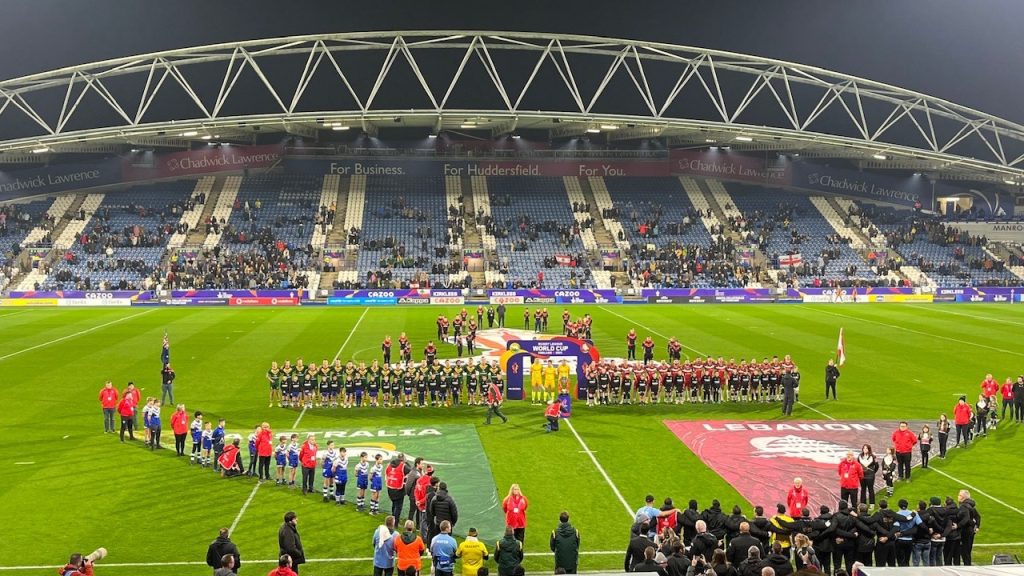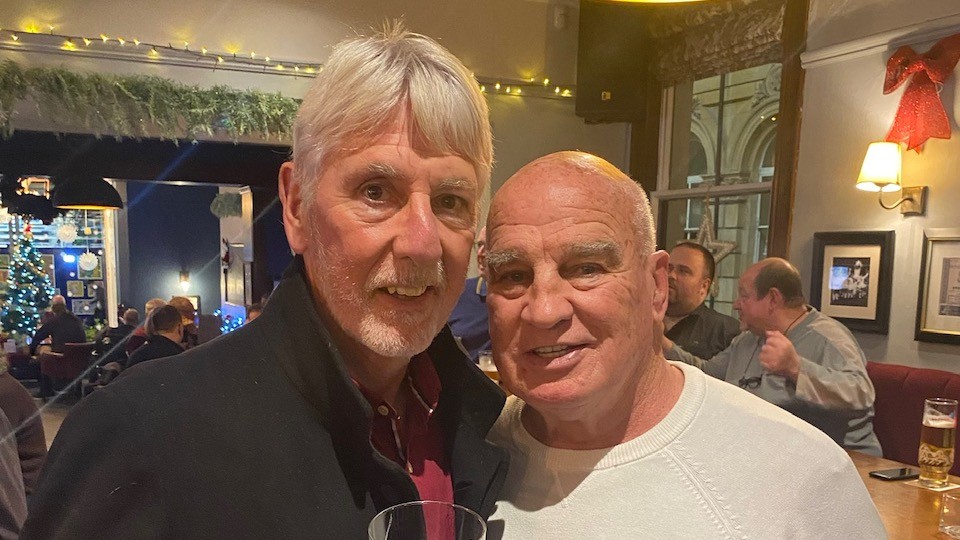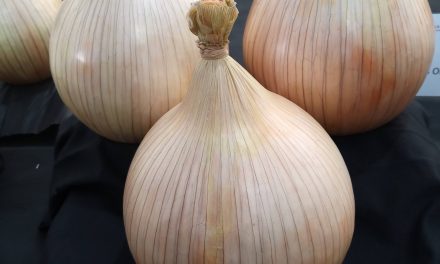Respected sports journalist Ian Laybourn has reported on Rugby League for almost half-a-century.
Holmfirth-based Ian, 67, has been all around the world writing about the sport he loves but now, after 48 years, he’s decided to retire from journalism and enjoy rugby league from the terraces and, perhaps, his armchair too.
For the last two decades Ian’s been rugby league correspondent for the national news agency, the Press Association.
As PA journalists don’t often get bylines on their stories Ian’s name might not be familiar, but his work has been published by local, national and international newspapers and media outlets, making him a respected figure in the rugby league world.
Ian, who retired after the recent Rugby League World Cup, said: “I’ve thoroughly enjoyed my career and now it’s time to relax and enjoy my retirement.
“I won’t miss the long, cold and wet Thursday and Friday nights going across the Pennines, that’s for sure!”
During his career Ian has not only seen rugby league change but also journalism. Back in 1974 he might be phoning his report through to a copytaker – or bashing it out on a typewriter in the office.
Three decades later he’d been tapping out his match report on a laptop at the ground and filing his copy over the internet.

Born in Batley, Ian grew up watching his hometown team and also went to see Wakefield with his uncle. He sat among big crowds and found a real passion for the game.
While studying at Batley Grammar School he decided to go into journalism and, after getting his qualifications at college, he started to write about Rugby League for his local paper, the Batley News.
Ian did this for three years before setting off on a trip-of-a-lifetime. He recalled: “I’d managed to get a job at the Batley News and worked there for just under three years.
“I then got the travelling bug and had the opportunity to go travelling through Africa so that’s what I did.
“When I got to South Africa I didn’t have enough money to get back home so I had to get a job for a bit out there. I worked as a sub-editor on The World newspaper.
“When I went there the black and white communities were still separated. When we were travelling through the towns some of the residents had never seen a white man. Travelling through Africa was an experience. After making some money I managed to get enough for a plane ticket home.”

After landing back in England, Ian continued his journalism career going on to work for the Huddersfield Daily Examiner, which he joined in 1977, followed by the Press Association in 1994.
In his career Ian has only missed one Challenge Cup Final and that was in 1977. He has also reported on several World Cups.
Ian had planned to retire after the 2021 World Cup and he did, though the tournament – and Ian’s retirement – was delayed for 12 months due to Covid.
When asked for his favourite World Cup, Ian said: “My favourite was 2013 because we weren’t quite sure what to expect. The crowds were good, the games were exciting and the whole tournament went well. It was held across a number of countries including here.
“Despite 2013 being my favourite tournament overall, one of the most magical moments that I have seen was definitely in the 2017 semi-final.
“England played Tonga in Auckland and although England won, the Tonga fans were just unbelievable. The whole stadium was bathed in red, the stadium held 25,000 and I think 24,500 supported Tonga that day.
“They made lots of noise before and after the game, you could see how proud they were. It was quite extraordinary.”

Ian has witnessed the sport go through many crises and there are new challenges ahead with dwindling crowds.
With fanbases ageing and the sport struggling financially, Ian believes it needs fresh, new ideas to get people back into watching the sport.
He said: “I think the big sports company IMG who have come on board will be good for the sport. There is no doubt that Rugby League is in decline but it will never die because too many people won’t let that happen.
“People have been saying it will die since it was formed in 1895, and it hasn’t yet! However, it does need fresh ideas to get it back to where it once was. Crowds have gone down and there isn’t as much money in the sport now so things do need to be looked at.
“One of the biggest changes in my time was the switch from playing in the winter to the summer. All the money that came into the game then from Rupert Murdoch has gone.
“Obviously you can argue whether it was spent wisely or not. At the time it saved the game as it was at a crisis point, and now we are at another crossroads.”
Just as Rugby League has changed, so the way the sport is covered has changed too with digital reporting and social media taking over from the printed newspaper.
Ian said the time was right for him to leave journalism and added: “I think I’m bowing out at a good time. The industry isn’t what it once was and I probably lived and worked through the best of it.
“If I was a young student coming through now, I don’t know if it is something I’d want to go in and do.
“I’m going to enjoy my retirement but if PA need me to do the odd game I’ll keep my hand in but the cold, late night trips across the Pennines aren’t for me anymore.”
Ian’s retirement was marked by the Rugby Football League adding his name to the sport’s Roll of Honour.
RFL chief executive Ralph Rimmer paid tribute, saying Ian had covered the sport with “diligence, wisdom and care for almost five decades.”

















